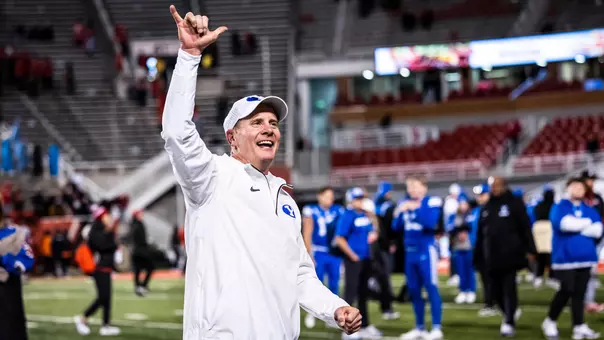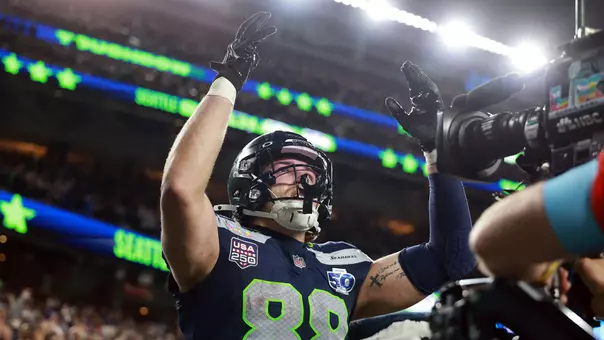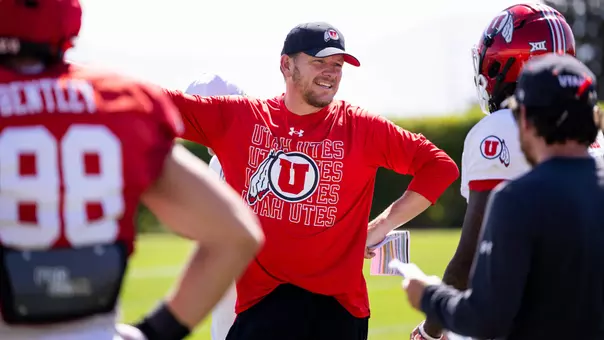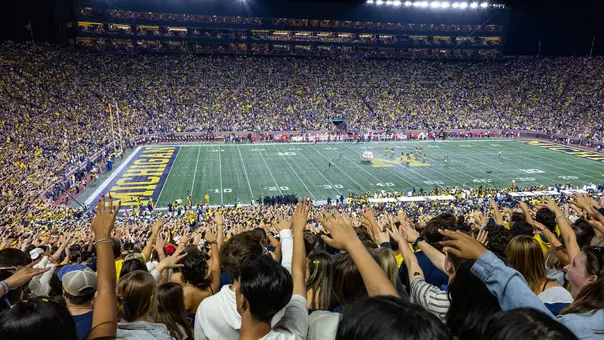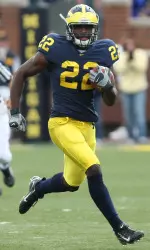
Future Friday: Q&A with Jamar Adams
3/25/2016 12:00:00 AM | Football
March 25, 2016

Jamar Adams
After representing the block M with pride while they competed for the Maize and Blue, our student-athlete alumni have gone off to become professionals in different areas of their lives. Whether they continued on in their sport, helped to build up a company or started a family, they are building a future. They are building our future. As they leave the University of Michigan campus they go forth with all they learned here to create a better future for us all.
Jamar Adams (2004-07) was a four-year letterman and three-year starter in the secondary for the University of Michigan football team. While in Ann Arbor, Adams earned his degree in general studies with a concentration in business from the College of Literature, Science and the Arts in three and a half years. On the field, he earned second-team All-Big Ten Conference honors as a junior and senior. Adams posted 172 tackles during his career, including 6.5 tackles-for-loss, two sacks, four interceptions and 22 pass breakups from his safety position. He played in two Rose Bowl games and helped lead the Wolverines to the Florida Citrus Bowl victory over Florida as a senior. Adams posted a team-leading 92 tackles during the 2007 season. After completing his collegiate playing career, Adams went on to play three seasons in the NFL with the Seattle Seahawks and Philadelphia Eagles before pursuing a career in finance.
Q. What are you doing in your career now?
A. I work in New York City for a company called Related. It's a real estate development company. I work in our affordable housing group where we do acquisition and rehabilitation for affordable housing all over the country, and then I also work in our ground-up New York development group, where we do market rate development of condominiums and market rate apartments in the city of New York.
Q. How did you choose your career path?
A. Well, I think it kind of chose me. When I was in school, I ended up graduating in three and a half years. In that third year, I had a professor who said to me, 'look, I want you to do more work than you're doing now.' I had to read current affairs, and based on one of those current affair articles I read one by a guy named Stephen Schwartzman, I realized I wanted to get involved in finance. I started to change the things I read, started to change the things I watched, and when I got to the NFL, I started to intern and job shadow at different investment banks. Once I got injured, I had people calling me and saying, 'we don't see you playing; if you're injured, we'd love if you'd come and work for us.' I ended up getting a job offer at Goldman Sachs, and then through a couple of connections, Michigan connections, I ended up getting to meet Mr. (Stephen) Ross to ask him to give me a letter of recommendation to go to the Ross School of Business. He said don't worry about going to business school, you should just come work for me, I'll be the best business school for you. So, that's what happened.
Q. What does the Michigan football program mean to you, personally?
A. I always tell people that it's the second-best decision I've ever made in my life. The first was to give my life to Christ and the second was to go the University of Michigan. It's a tremendous school, it's a tremendous football program and it's known for the right things: character, commitment, toughness, determination and finishing projects. To me, it's the premier University and football program in the country.
Q. How did playing here and going to school here help prepare you for your career outside of football?
A. I think that it was the aspect of completing jobs. It was really tough. Mike Gittleson was a tremendous strength coach, and the football coaches were really tough on us, and we learned how to compete and fight through really tough times. I think that's something everyone needs if they want to be successful. Learn how to do things you don't really necessarily want to do at the time because you want to get to where you want to be, whether it's a championship or the top position in a company.
Q. Thinking back to your time at Michigan, what does the football networking event do for the young men to prepare them for the work force?
A. I think that it opens their mind because while you're in school, you think that football is everything. You think that what you do is the highlight of the world, or maybe, perhaps, when you're a kid, you've heard about doctors and lawyers and that's what you wanted to be. If you expand your horizons, you realize there are hundreds and thousands of careers out there to choose from, and you just have to find on that you're really passionate about, so I think that's what the event does.


Q. How would the mentoring program have helped you when you were in college?
A. It would have been a tremendous opportunity to have one, with the networking connections. All of these young guys are getting people's business cards. They're meeting people who are working in an industry and can talk to them in detail about what they do. It would have cleaned up a lot of things for me, particularly in my freshman and sophomore year, where I was kind of oscillating between being a lawyer or considering something in the business sector. I didn't know what I wanted to do. But this helps them clear up the picture of what they potentially want to do, because they could have someone to reach out to that says, this is what I do on a day to day basis, this is how much money I make, and this is what I like about my job. I would have liked to have this experience.
Q. What is the best piece of advice that you have for the student-athletes currently representing Michigan?
A. Network, network, network. That means you have to be a great student, you can't be slacking, you've got to go to class; network in your peer group. There are going to be some kids here who are phenomenal people and are very successful in this world. They'll be the next person that runs Goldman Sachs or they'll be the next person that runs some investment bank. So network amongst your peers, but also try to network with the alumni base. It's a tremendous, great network base for Michigan alumni, and you've got to tap into it.
Q. What does it mean to be a graduate of the University of Michigan?
A. I mean, like I said before, it's the second best thing I get to claim, and everywhere you go, there is someone that will say to you 'Go Blue!' It's the best thing in the world.
Q. What's your best memory playing football here?
A. It wasn't some big victory. It was sitting around the locker room and getting to know my best friends. It was probably stuff like looking in the eyes of Mike Hart before a game and knowing I could trust him, and that he's going to be there for me. It was like looking in the eyes of a Morgan Trent or LaMarr Woodley and saying he's my best friend and we're going into a battle together. It's the friendships and connections that you make that mean the most to me.
The 2015-16 academic year marks the 150th anniversary of Michigan Athletics. We invite the University of Michigan family to celebrate the passion that fuels us, rediscover the stories and traditions that unite us, and imagine what the future holds for us. We look forward to celebrating "This Michigan of Ours." To share a memory of Michigan Athletics, please fill out our online form or email goblue150@umich.edu.

